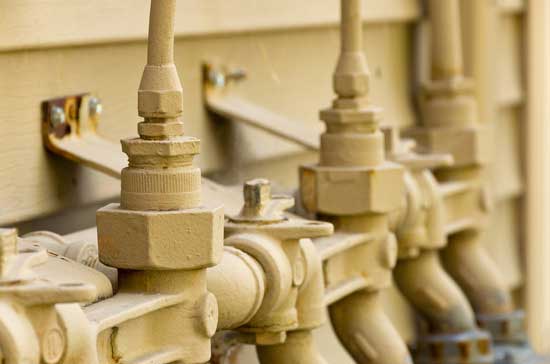There are many benefits of using natural gas as opposed to electricity. In addition to the more obvious appliances that run on gas, including hot water heaters, clothes dryers, ovens/stoves, and furnaces, there are many others. Of course, because there is gas involved, it is important for homeowners to have appliances and fixtures inspected and tested regularly. That way, any damage or other potential risks can be identified quickly and corrected immediately to avoid a gas leak, fire, or explosion.
Cost Savings
Of all forms of energy, natural gas is one of the most affordable. In fact, from a historical standpoint, natural gas has been a better value compared to electricity for residential purposes. In 2011, natural gas was determined to be the most cost-efficient source of conventional energy available for home use. Today, the cost of natural gas is roughly 68 percent lower than electricity.
Wide Array of Uses
Natural gas is commonly used throughout homes in ways that most people do not realize, such as for air-conditioning systems, swimming pools, Jacuzzis, barbecue grills, fireplaces, outdoor lighting, heat pumps, under floor heating, fans, and more.
- Cooking – Specific to cooking, many people prefer cooking with natural gas. For one thing, it is much easier to control cooking temperature. For this reason, gas stoves and ovens are typically used by professional chefs. In addition, stoves and ovens that operate on gas have self-ignition and self-cleaning systems that work incredibly well. One of the top benefits of cooking with natural gas is that compared to cooking on an electric stove/oven, the cost is roughly 50 percent less.
- Heating – Natural gas is also used for heating purposes. In the United States alone, it is estimated that more than 60 million homes are heated with this form of gas. Of gas consumed throughout the country, nearly 23 percent of the total amount is used solely in homes. Not only is natural gas heating found in older homes, but buyers often request gas as part of new home construction.a recent report created by the U.S. Census Bureau, heating for over 50 percent of new family homes built in 2010 was with natural gas, while 43 percent used electricity, 1 percent used oil, and the remaining 2 percent used some other source for heating.Although heating is a primary use of natural gas, homes are also cooled using this gas. This type of air conditioning has been around for more than 70 years, but thanks to new technological advancements, gas-powered air conditioning has becoming increasingly more popular.
- Air Conditioning – While the cost of an air conditioning system that operates on gas is more expensive initially, long term it becomes the more cost-efficient solution. Gas-powered air not only is more efficient, but also needs less maintenance. To operate, air conditioning systems that run on natural gas require up to 30 percent less energy and, if properly maintained, can last 20 years longer.
- Appliances – Another trend is appliances that operate on natural gas. Again, these appliances are more efficient and affordable, with the initial expense being recouped quickly. As with air-conditioning systems, gas-powered appliances cost less money to operate and last longer than those designed to run on electricity.
New Opportunities
Although there likely will always be things in the home that need electricity to operate, there is a growing number of developments specific to the use of natural gas. For instance, distributed generation consists of using micro-turbines and natural gas fuel cells to produce electricity, making it possible for homeowners to completely disconnect from a local electricity provider.
This particular technology is still being developed, but according to experts, it offers tremendous promise. This is an efficient, reliable, and environmentally friendly alternative to the traditional utility company setup.
The first cell powered by natural gas was installed in 1998 in the state of New York. This system was designed to connect directly with the natural gas line for the home and used as the sole supply of fuel. Today, that home remains 100 percent free from outside electricity.
Again, it will be some time before this technology becomes widely available, but this work in progress offers outstanding opportunities. The bottom line is that natural gas is a better choice. When properly maintained and repaired by a professional plumber, natural gas systems provide years of excellent service. Even switching out one or two appliances can make a significant difference in cost and efficiency.
